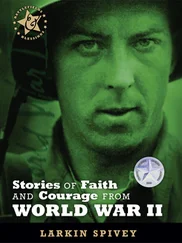This is not to glorify war, however. One can appreciate some of the human qualities and priorities of wartime without feeling nostalgic for a time when millions of people were being killed, wounded and severed from their homes and families. Nonetheless, it is the positive aspects of war that, understandably, many veterans like to think about in their twilight years: this is basic human instinct. There is also no question that only in the last fifteen or twenty years have many of the veterans begun talking and writing about their experiences.
After the war, most wanted to get home and get on with their lives. Find a job, marry, have kids and settle into ‘normal’ life once more. They never thought of themselves as special because everyone had been in the same boat. Only once they had retired, with their children flown the nest, did they have the time to really analyse what had happened to them. Most veterans tell me the same: ‘I never really talked about it until I was in my seventies when I started going to reunions.’ Perspective takes time. A period of quarantine is needed. Most veterans need maturity, not the callowness of youth, to be able to properly weigh up the experience of what happened to them.
There is also a sense that time is marching on. Most veterans are now over eighty and many feel the need to tell their stories before they are gone for ever. And as their numbers dwindle, their experiences cease to be commonplace, but rather special instead. ‘Only now am I beginning to realize that what I did back then was pretty incredible,’ one former fighter pilot told me.
The wheel of change has been swift in recent years, which often makes the sixty years since the end of the Second World War seem longer than it really is. Yet talking to many of those who lived through those times soon draws the war closer again. Sixty years is not that long really – we can still touch it through these survivors, and still find inspiration from their heroism.
Those that survive, are, of course, the lucky ones. They have had a chance to live full lives and to grow old. A former German paratrooper visited Cassino in Italy for the sixtieth anniversary of that most terrible battle. He toured all the cemeteries, hugged his former comrades and enemies, and told me the story of his friend who had died slowly in his arms. ‘And here we all are now,’ he said, ‘so what was the point?’ We are fortunate today that we can make the most of our youth. Europe is now united and the United States our ally still. The generation who fought in the war should not be forgotten, not now, while many still live, nor in the future when they are gone. We should learn their lessons and remember and recognize the enormous sacrifices they made.
TWINS
Shortly after 10 a.m. on Wednesday, 3 November 1943, a cipher clerk at RAF Leeming in Yorkshire received a signal from Bomber Command Headquarters that there would be an operation that night. There was nothing unusual about this – they often came in about this time, after the morning meeting at High Wycombe. A WAAF immediately put a call through to Wing Commander Jack Pattison, CO of 429 ‘Bison’ Squadron, Royal Canadian Air Force. ‘There’s a “war” on tonight, sir,’ she told him. A few minutes later, he was in the operations room himself.
Pattison was handed the fully decoded message in silence. Another maximum effort was being called for; it was ever thus. The target: Düsseldorf, an industrial city that had been designated a ‘Primary Industrial Area’ in the Air Ministry’s directive to Bomber Command early the previous year. Even so, and despite being in the heart of the Ruhr industrial area, the city had been attacked only four times, and not since June. But that night, Bomber Command wanted six hundred aircraft to take part, a large raid indeed. A glance at the board showed that fifteen of their sixteen Halifaxes were fit to fly. Almost maximum strength – and that included the CO and his crew flying as well.
Flight Sergeant Bill Byers wandered over to the Flight Room at around 10.30 a.m., and there learnt that he would be going out that night. A notice on the board merely warned them that they were under battle orders, but nothing more – no clue to the destination or size of the raid was given. He immediately went to see the meteorological officer to try and find out what the weather was due to be like over Europe, then called his crew together. Once assembled, they took a truck – or a blood wagon, as they were known – over to their aircraft, ‘Z’ for Zebra, so they could run up the engine and go through the pre-flight tests. It was a grey, damp, cold day – the kind of day that never really grew light – and drizzling slightly. Mist shrouded the airfield. The Halifaxes around the perimeter loomed like spectres. Most of the other crews had followed suit, and despite the chill stillness of the day, RAF Leeming was now a hive of activity. As well as the jeeps and trucks rumbling by, trolleys of bombs, fuel bowsers and ammunition carts were all hurrying to the dispersal areas.
Not far away, Bill’s twin brother George was going through the same process with his crew. The brothers had only been with the squadron a month but were already considered quite a unique pair at Leeming – after all, there’d not been identical twins at the station before. Moreover, not only did they look exactly the same, they were also practically inseparable, apart only when with their respective crews and in the air. They even shared a house together. On their arrival they’d been allocated a married quarters house in Leeming. Dick Meredith, Bill’s wireless operator, shared the house with Bill and George. The twins took a room upstairs, while Dick and several other crew members took rooms downstairs. ‘They were so much alike, you could barely tell them apart,’ recalled Dick when I spoke to him some time later. ‘And so close. They never said, “Where’s my shirt or socks?” but “Where’s our shirt?”’
Shortly after the pre-flight tests, it was time for lunch – a simple but nutritious hot meal, followed by chocolate or biscuits. Bill would always take a bar of chocolate and a tin of apple juice with him on the mission, but it was important to make sure the crews were well fed before they took off. The food was a perk of the job – and there needed to be some – for while most in Britain struggled with the stringent rationing, there were fewer shortages for the bomber boys. Bill and George ate their meal with Dick Meredith and some of their other crew members in the sergeants’ mess. Strangely, although the twins were the captains of their aircraft, they were not officers, even though two members of their respective crews were, and messed separately; the social divide between officers and non-commissioned officers might have been put to one side in some theatres of the war, but not so in Britain. Not everyone felt like eating a heavy meal – nerves and apprehension gave people a nauseous sensation in their stomachs. The key was to try not to think about it too much, and to keep the conversation going. Distraction was everything.
Between the end of lunch and the final briefing there was not much time – the chance for a quick game of cards, or to write a letter, but not much more. In the Flight Rooms, they would put on silk underwear, thick pullovers and flying boots, then head to the Briefing Room. There, all the crews came together, not just from 429 Squadron, but 427 ‘Lion’ Squadron as well, also based at Leeming: pilots, navigators, flight engineers, air bombers, wireless operators and the air gunners, piling in and scraping back chairs as they sat down. Since that first message earlier in the day, more information had reached Leeming about the route, the bomb loads required, timings, and, crucially, frequent weather updates. In the Briefing Room, there were rows of desks on which pilots and crews could make notes, while on the end wall was a large map, covered over with a cloth until the Station Commander came in and announced the destination. This could be an anxious moment: the further away, and the deeper into Germany the raid, the more dangerous it was. Then the Navigation Officer spoke, explaining the forming-up procedure and the route to Düsseldorf, marked on the map with lines of white tape. The Met Officer was next. Despite the low cloud over northern England, the target area was, he assured them, expected to be clear. Bill listened carefully, jotting down a few notes on a scrap of paper. This was only his second mission as skipper and he felt his stomach tighten.
Читать дальше












